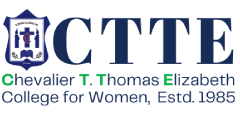This Section details the different courses undertaken, over a period of Six Semesters to complete the Bachelor Of Commerce – General : Undergraduate Program.
The courses are of the following varieties, Core papers that are mandatory, Electives that can be chosen from list of available electives and Laboratory practicals if applicable. The courses when successfully completed, collectively contribute towards the minimum requirement of awarding a Bachelor’s degree.
Program Outcomes
On successful completion of Bachelor of Commerce programme, students will acquire knowledge, skills, and attitudes required to become successful employees or entrepreneurs in the commercial or corporate world.
Program Specific Outcomes
By the end of B.Com. (General) programme, students will be able to acquire skills in accounting, finance, taxation, management, and economics, and develop their accounting knowledge through the curriculum and value-added certificate courses.



